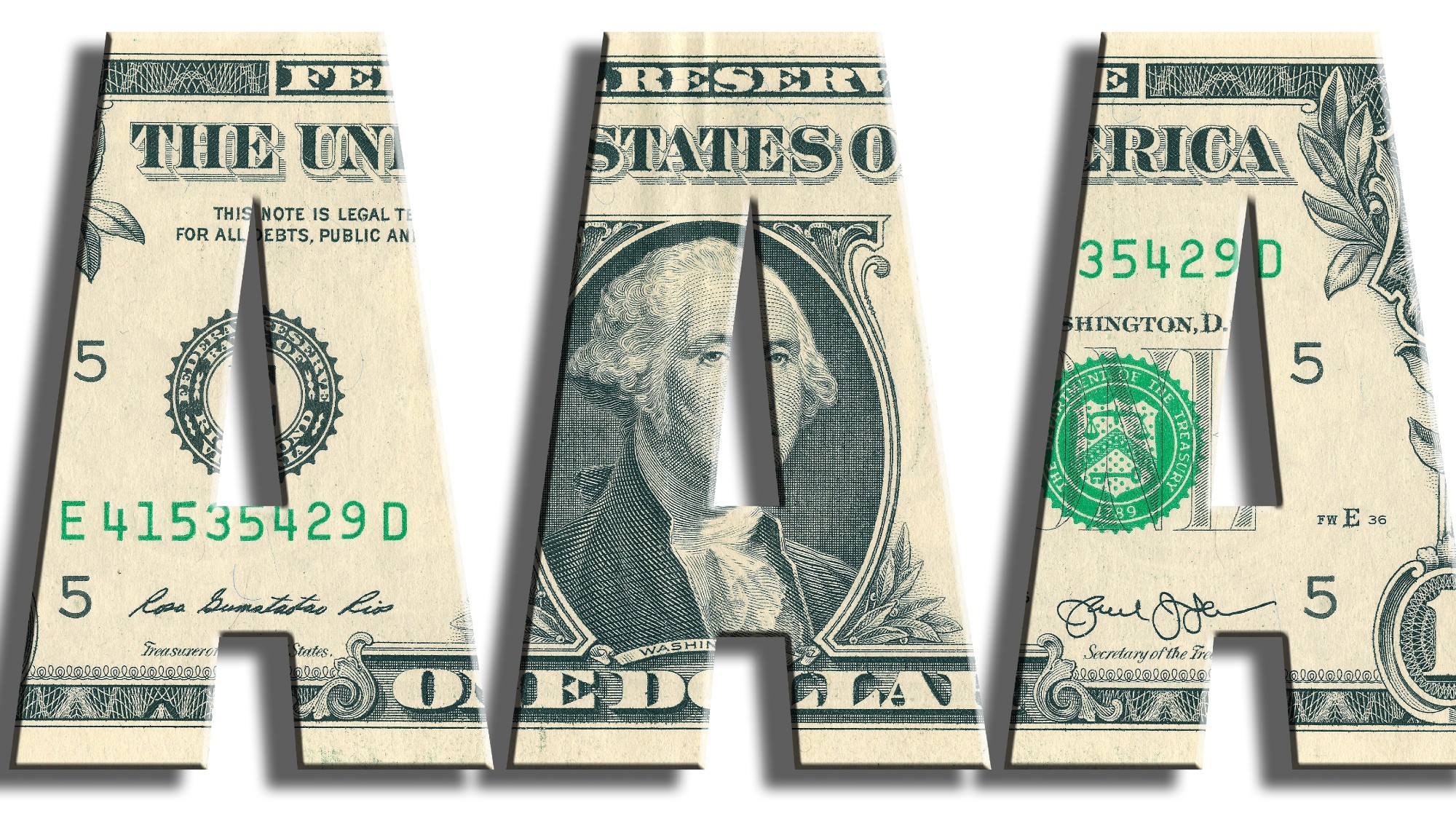What the debt ceiling debate means for your finances
Deadlock in Washington could have dire consequences for retirement plans


A free daily email with the biggest news stories of the day – and the best features from TheWeek.com
You are now subscribed
Your newsletter sign-up was successful
The ongoing showdown over raising the debt limit could have serious implications for Americans' finances. The U.S. has never defaulted on its debt obligations since the establishment of the U.S. Treasury in 1789. However, experts contend that even just nearing — let alone passing — the point of default could rock Americans' retirement plans.
And that's far from the only financial impact we could see. Social Security recipients could experience delays in receiving their benefits, borrowing costs could push even higher, and unemployment could surge. Here's a closer look.
What is going on with the debt ceiling?
For weeks, congressional Republicans and the Biden administration have been unable to reach a deal to raise the debt limit, or debt ceiling. The debt limit is the cap on how much the federal government can borrow, and "because the U.S. consistently runs large annual deficits, the debt limit must regularly be addressed," The Wall Street Journal explained.
The Week
Escape your echo chamber. Get the facts behind the news, plus analysis from multiple perspectives.

Sign up for The Week's Free Newsletters
From our morning news briefing to a weekly Good News Newsletter, get the best of The Week delivered directly to your inbox.
From our morning news briefing to a weekly Good News Newsletter, get the best of The Week delivered directly to your inbox.
If the debt ceiling is not raised in time, the Treasury Department will reach a point where it's not able to issue more debt, which will lead to the government being unable to pay its bills on time. Treasury Secretary Janet Yellen has repeatedly warned that this deadline for default is fast approaching, perhaps as soon as June 1, if Congress fails to raise the debt limit.
Talks between congressional Republicans and President Biden are ongoing. The former would like to see cuts in federal spending before they agree to raise the debt ceiling. Biden is resistant to the idea of attaching other demands to the task of increasing the debt limit, given it does not authorize additional spending but rather ensures the U.S. can meet its existing debt obligations.
What could the debt ceiling standoff mean for retirement plans?
As the U.S. creeps closer to a default, we are seeing "increased market volatility," Joel Dickson, the global head of advice methodology at the investment firm Vanguard, told NPR. "But whether that volatility actually manifests itself in lower or higher returns at any given point in time is really not under an investor's control and it's really, really hard to predict."
In one estimate from the think tank Third Way, "a typical worker near retirement with 401(k) savings could lose $20,000 if the U.S. were to default on its debt," NPR reported.
A free daily email with the biggest news stories of the day – and the best features from TheWeek.com
History also supports the assertion that debt limit standoffs don't bode well for the stock market, and thus for Americans' 401(k) plans. According to Jill Schlesinger, CBS News business analyst, during the 2011 debt limit debate, which was resolved just days before the U.S. would have defaulted, "the stock market went down by 14% over 4 weeks."
If the government were actually to default, the effects could be starker — CBS News reported that Moody's Analytics chief economist Mark Zandi predicted in 2021 that "a U.S. government default would cause the stock market to plunge by one-third and erase $15 trillion in household wealth."
Of course, since retirement accounts are intended as long-term investments, many Americans' accounts would have time to ride out the tumult and recover. But for those who are planning to retire in the near future, the debt ceiling showdown could have more immediate implications.
What about Social Security benefits?
It's likely that the estimated 66 million Americans who rely on Social Security benefits will continue receiving their payments, even if the government defaults. However, "there is a chance the checks many retirees rely on to pay the bills could be delayed or temporarily reduced should the government default on its obligations," The Wall Street Journal reported.
Initially, the delays may not be substantial, but if the debate drags on, "they would get longer," Jason Fichtner, chief economist at the Bipartisan Policy Center, told the Journal.
What other financial damage could result from a default?
Those nearing their golden years aren't the only ones who could face financial ramifications if Congress can't strike a deal.
Unemployment is a concern. "Don't worry about your stock portfolio, worry about your job. Because a lot of jobs are going to be lost," Zandi told NPR. "Unemployment is going to be a lot higher. Is the economy struggling already trying to avoid recession because of high inflation, high interest rates? This will certainly push us and, you know, it's going to be about layoffs. Stock portfolios will be the least of people's worries."
A default "would likely push rates even higher," Johns Hopkins University business lecturer Kathleen Day said to CBS News. "The cost to borrow for homes, cars and credit cards would explode," said Day. "In short, default would cause mayhem."
Becca Stanek has worked as an editor and writer in the personal finance space since 2017. She has previously served as the managing editor for investing and savings content at LendingTree, an editor at SmartAsset and a staff writer for The Week.
Becca Stanek has worked as an editor and writer in the personal finance space since 2017. She previously served as a deputy editor and later a managing editor overseeing investing and savings content at LendingTree and as an editor at the financial startup SmartAsset, where she focused on retirement- and financial-adviser-related content. Before that, Becca was a staff writer at The Week, primarily contributing to Speed Reads.
-
 Nuuk becomes ground zero for Greenland’s diplomatic straits
Nuuk becomes ground zero for Greenland’s diplomatic straitsIN THE SPOTLIGHT A flurry of new consular activity in the remote Danish protectorate shows how important Greenland has become to Europeans’ anxiety about American imperialism
-
 ‘This is something that happens all too often’
‘This is something that happens all too often’Instant Opinion Opinion, comment and editorials of the day
-
 House votes to end Trump’s Canada tariffs
House votes to end Trump’s Canada tariffsSpeed Read Six Republicans joined with Democrats to repeal the president’s tariffs
-
 How your household budget could look in 2026
How your household budget could look in 2026The Explainer The government is trying to balance the nation’s books but energy bills and the cost of food could impact your finances
-
 What is a bubble? Understanding the financial term.
What is a bubble? Understanding the financial term.the explainer An AI bubble burst could be looming
-
 The FIRE movement catches on as people want to retire early
The FIRE movement catches on as people want to retire earlyIn the spotlight Many are taking steps to leave the workforce sooner than usual
-
 Social Security: Insolvency date keeps getting closer
Social Security: Insolvency date keeps getting closerFeature A new report has projected that Social Security funds could be depleted by 2033
-
 Who wants to be a millionaire? The dark side of lottery wins
Who wants to be a millionaire? The dark side of lottery winsIn The Spotlight Is hitting the jackpot a dream come true or actually a nightmare?
-
 US credit rating: what it is and why it matters
US credit rating: what it is and why it mattersthe explainer Credit rating agency Moody's downgraded the US last month
-
 How can you find a financial adviser you trust?
How can you find a financial adviser you trust?the explainer Four ways to detect professionals who will act in your best interest
-
 What should you consider when choosing a financial adviser?
What should you consider when choosing a financial adviser?The Explainer The right person can be a big help with financial planning, investing, taxes and more
